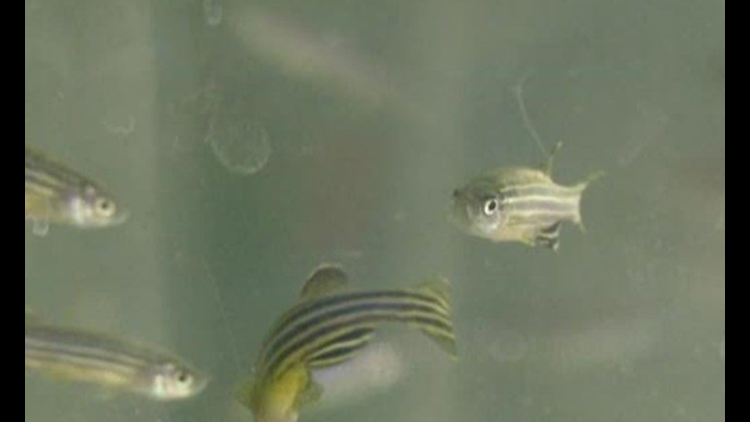Pollutants in the water may be endangering fish by lowering their ability to smell, according to University of Washington researchers.
Many people associate water pollution with big fish die-offs, said Evan Gallagher, a professor of toxicology at the UW School of Public Health. But many of the problems fish face come from low levels of pollution.
Small amounts of metals such as cadmium and zinc, which are common industrial pollutants, can reduce a fish’s ability to smell.
“This becomes important for salmon because they are already exposed to so many other pressures out there,” Gallagher said. “Now you add exposure to chemicals, maybe losing some of their sense of smell – it can really impact the population.”
A sense of smell is critical for fish to avoid predators and find prey. For salmon, it’s the key to finding their way back to their spawning grounds.
In Gallagher’s lab, researchers study how certain pollutants affect the ability of young fish to detect “alarm scents” – signals in the water that warn fish of danger.
“Essentially, [it’s] the smell of chewed-up fish,” Margaret Mills, a postdoctoral scholar studying aquatic toxicology, explained. “The fish thinks, ‘that smells scary, I would like to run away.’”
In the lab, five-day-old zebrafish — no bigger than an eyelash — are put into the central compartment of a small trough. Some of the fish have been raised under normal conditions, and some have been exposed to certain pollutants in the early stages of their lives. Then, some of the compartments are injected with an alarm scent. If the pollutant is really harming the fish’s sense of smell, they are less likely to stay away from the danger zone.
There’s one complication.
“Behavior is messy,” Mills said. “There’s never any guarantee that any group of fish will respond in a given way.”
It’s also impossible to tell how these small fish are behaving just by looking at them. A video camera stationed above the tank records the experiment, then Mills uses a computer to analyze the “fish density,” or where the fish in each trough spent their time. The lab’s work has shown the fish from the pollutant-laden waters are indeed less likely to avoid the areas where the alarm scents are.
What does this have to do with the salmon? The lab uses zebrafish because they are small and reproduce much more quickly than salmon. However, zebrafish share many genes with salmon, including those that control their sense of smell and are affected by pollutants.
Gallagher’s ultimate hope is that his work helps people make better regulatory decisions about what ends up in our water.
“We’re never going to have totally pristine waterways,” Gallagher said. “But certainly if we can reduce the amount of hazardous chemicals in certain waterways, we reduce the risk to the fish.”



